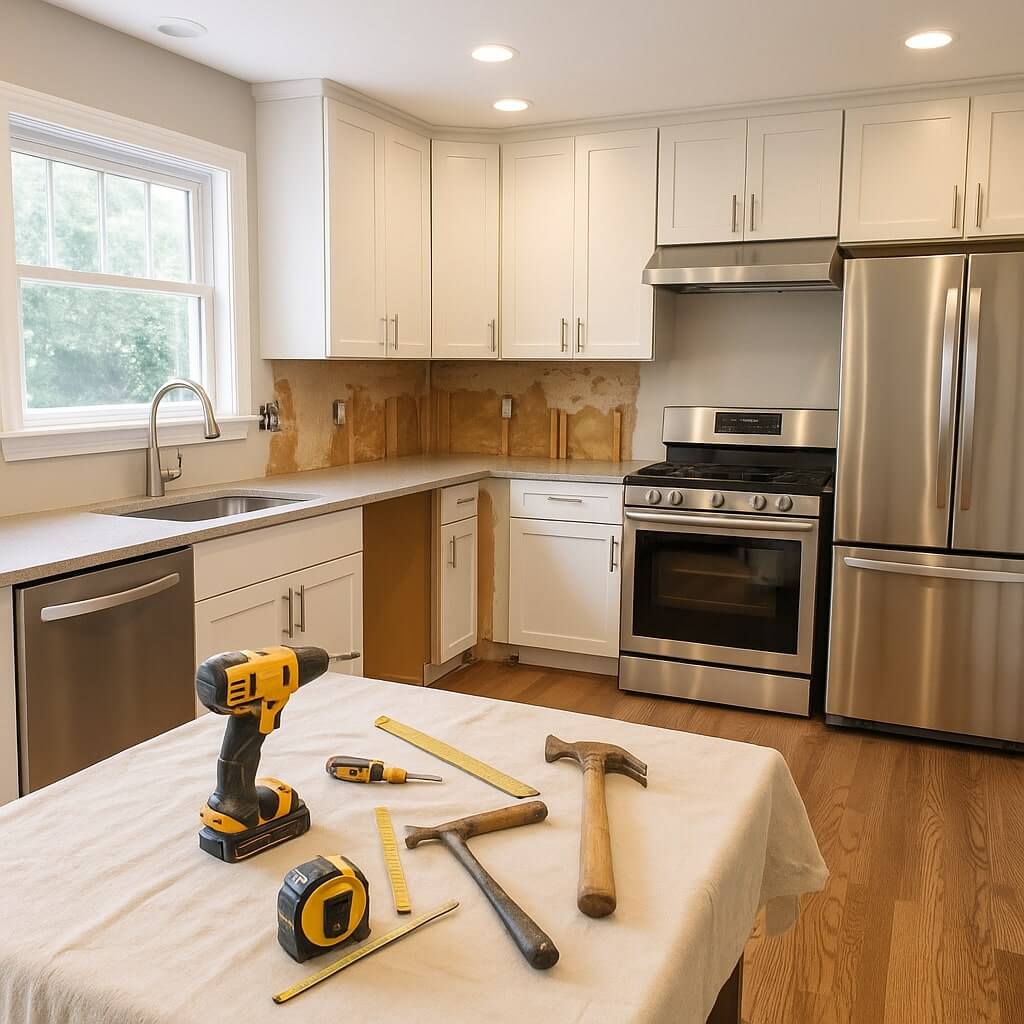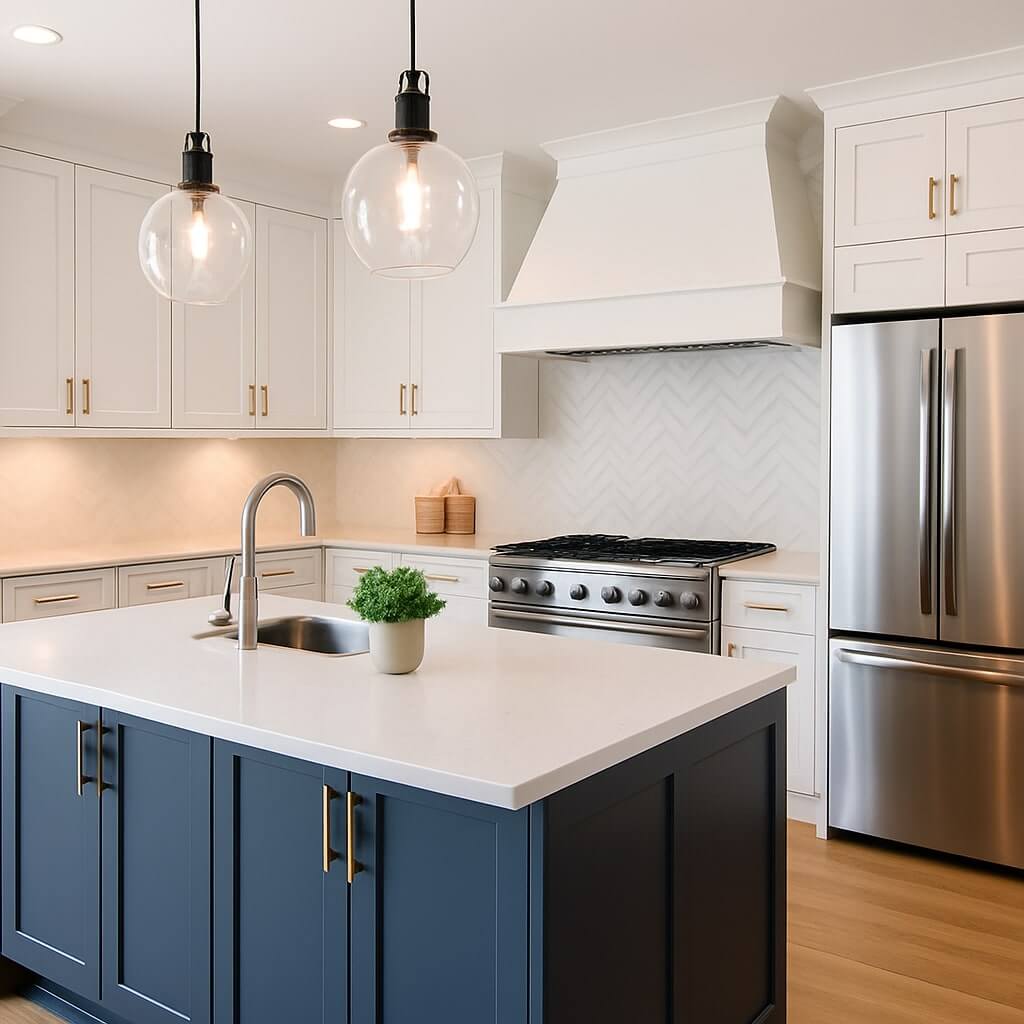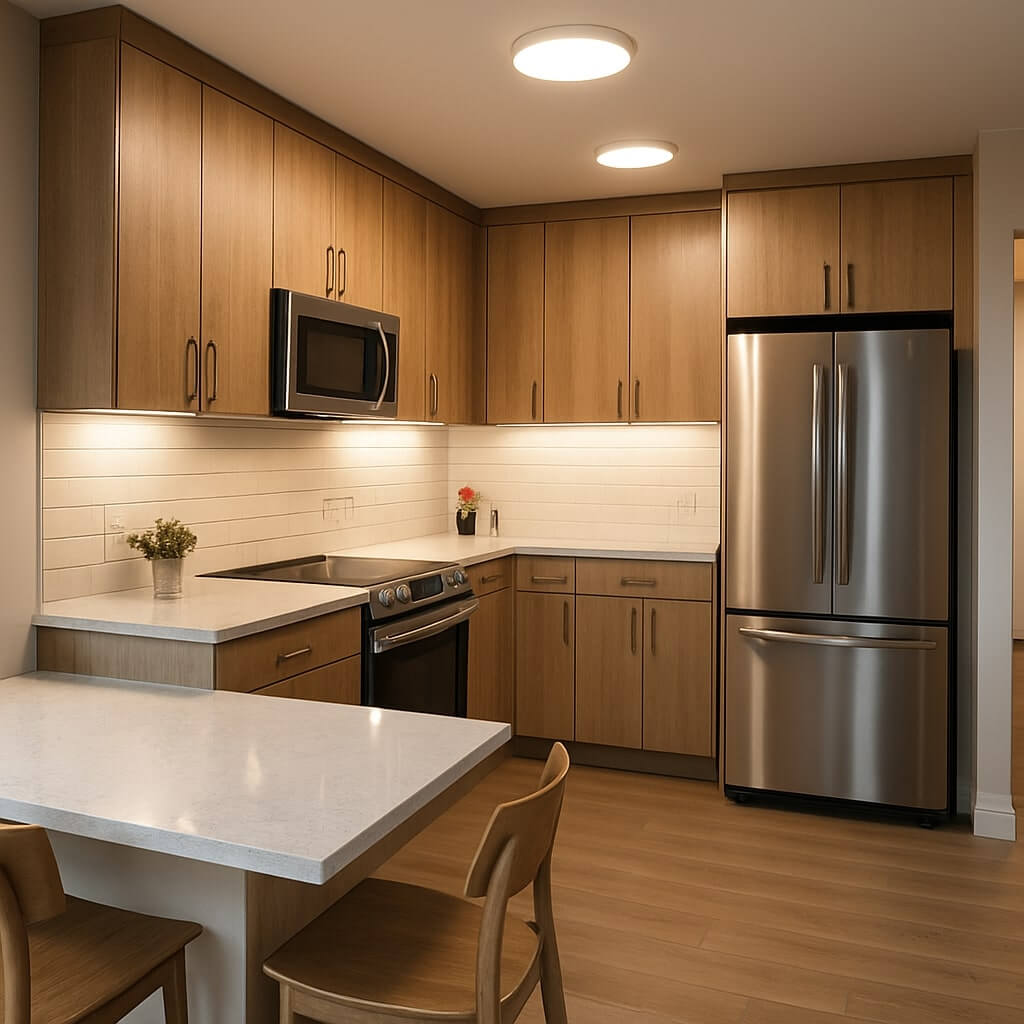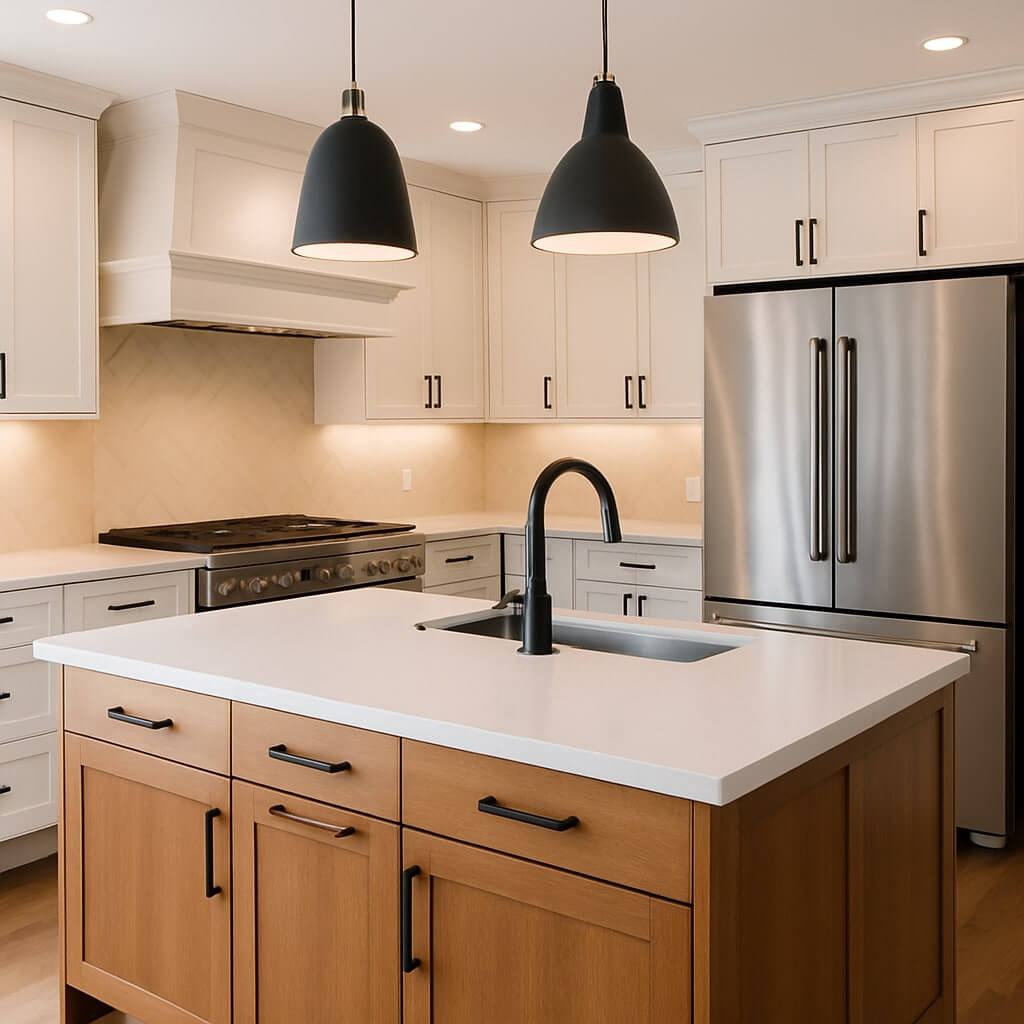Planning a kitchen remodel can be exciting, but before you tear out cabinets or reroute plumbing, it’s crucial to ask: Do you need a permit to remodel a kitchen? The answer isn’t always straightforward, but understanding local permit requirements can save you time, money, and legal trouble down the road.
In this guide, we’ll explore when you need a permit, what types are required, how to get one, and the consequences of skipping the process.
Why Kitchen Remodel Permits Matter
Permits exist to ensure safety and code compliance. Whether you’re changing electrical systems or knocking down walls, permits help ensure the work is safe, legal, and done to code. Not getting the proper permits can cause major issues, especially when selling your home.
When You Do Need a Permit for a Kitchen Remodel
You will generally need a permit if your kitchen remodel involves:
1. Structural Changes
If you are removing or relocating walls, especially load-bearing ones, you’ll likely need a building permit.
2. Electrical Work
Installing new outlets, moving wiring, or upgrading your electrical panel usually requires an electrical permit.
3. Plumbing Modifications
If you are moving the sink, dishwasher, or adding water lines for a refrigerator or pot filler, a plumbing permit is needed.
4. HVAC Changes
Adding or relocating vents, ducts, or installing new range hoods that require ducting out of the home requires a mechanical permit.
5. Window and Door Changes
Enlarging or moving windows and exterior doors also requires a permit due to structural and energy code implications.
When You May Not Need a Permit
Not all kitchen remodels require permits. For example, you usually won’t need one if you’re doing the following:
- Replacing cabinets without changing their layout
- Painting walls or installing new tile
- Swapping out countertops
- Replacing appliances without moving or modifying utilities
However, it’s always wise to check with your local building department, as requirements vary by city and county.
How to Get a Permit for a Kitchen Remodel
1. Consult Local Building Authority
Start by contacting your city or county’s building department to understand what permits are required.
2. Prepare Documentation
You may need to submit architectural drawings or detailed plans, especially for structural or major utility changes.
3. Apply for Permits
Depending on your location and project, you may need one or multiple permits (e.g., electrical, plumbing, building).
4. Schedule Inspections
Most permits require at least one inspection to ensure the work complies with code. Inspections may be required at different phases (rough-in and final).
5. Permit Approval and Fees
Permit costs vary, typically ranging from $100 to $2,000+, depending on the size and complexity of the project.
Risks of Remodeling Without a Permit
1. Fines and Penalties
Unpermitted work can lead to fines, stop-work orders, and additional fees if you’re caught.
2. Insurance Issues
Home insurance may not cover damages from unpermitted work, especially if a fire or flood occurs due to faulty wiring or plumbing.
3. Problems Selling Your Home
During a home sale, unpermitted work can delay or cancel a transaction. Appraisers and home inspectors can spot work that wasn’t approved.
4. Costly Corrections
If the city requires you to tear out completed work to inspect it, you could face significant rework and costs.
Tips for a Smooth Permit Process
- Hire a licensed contractor: They usually handle permits on your behalf.
- Don’t start without approval: Always wait until the permit is approved before beginning work.
- Keep all paperwork: Store inspection reports and permits in a safe place for future reference.
- Be honest and thorough: Disclosing the full scope of your project ensures smoother approval.
Final Thoughts
Do you need a permit to remodel a kitchen? In many cases, yes—especially if your remodel involves structural, electrical, plumbing, or HVAC changes. Always check with your local building department to ensure compliance. While the process may seem tedious, getting the proper permits protects your investment, your safety, and your home’s long-term value.
Frequently Asked Questions (FAQs)
You could face fines, forced demolition, insurance issues, and problems when selling your home.
Depending on the city and complexity of your project, it could take anywhere from a few days to several weeks.
Yes, homeowners can apply, but hiring a licensed contractor is often easier since they’re familiar with the process.
Yes, mobile homes have their own set of codes, and kitchen remodeling often still requires permits.
Usually not, unless you’re changing the layout or affecting plumbing or electrical systems.
Yes. Moving a sink typically involves plumbing modifications that require a permit.




